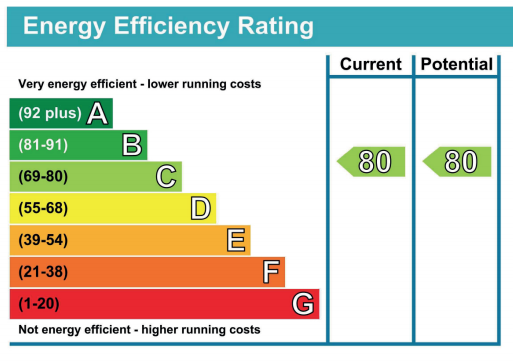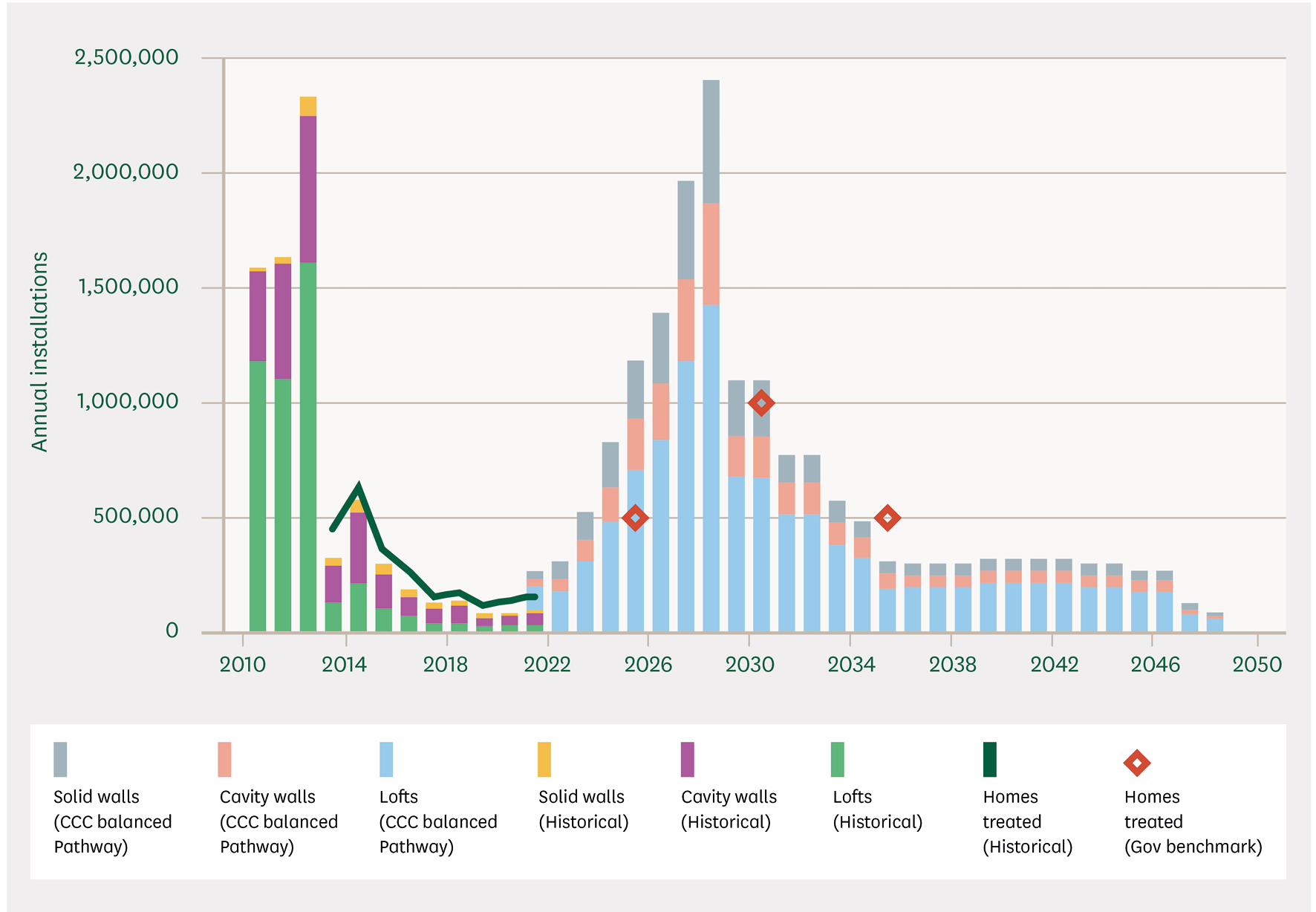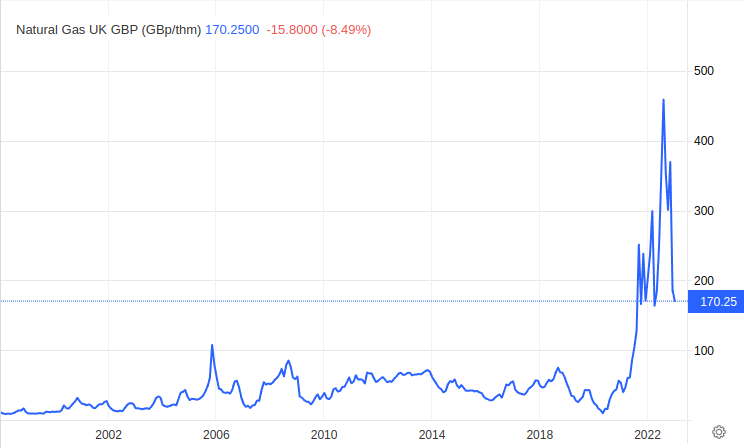
Energy efficiency is the first step
The cheapest and greenest energy is the energy we don't use. Calls for a national 'war effort' on energy efficiency.
Summary: The UK government missed a “crucial window of opportunity” to boost energy efficiency and reduce emissions last summer, according to a report from the parliamentary environmental audit committee (EAC). The call for a national “war effort” on energy efficiency was made in the wake of the energy bills crisis triggered by Russia’s invasion of Ukraine and political upheaval in the UK between July and October 2022. The EAC called for the introduction of onshore windfarms, the installation of solar panels on new buildings, and the end of oil and gas field licensing, in order to cut energy bills and increase security of supply.
Why this is important: The cheapest and greenest energy is the energy we don't use.
The big theme: The built environment, encompassing residential and commercial buildings, communal areas such as parks, and supporting infrastructure such as energy networks, mobility, and water supply, is an important sustainability theme that shouldn't be taken for granted. It is an integral part of societal existence and a major decarbonisation (40% of energy-related GHG emissions) and resource consumption problem (40% of global raw materials) that needs investor, government, business and consumer attention. It can have significant impacts on our health, well-being and equity & inclusion, notably as climate change and climate-induced migration is steadily and significantly increasing the number of people exposed to extreme weather, including heat stress.

The details
Summary of a story from The Guardian
A report from the Environmental Audit Committee (EAC) concluded that the government has missed a "crucial window of opportunity" last summer to cut energy usage, through efficiency gains and ultimately reduce energy bills. This prompted calls from a cross-party committee of MPs for a "war effort" on energy efficiency to drive that reduction and in addition build energy security and reduce climate-heating emissions. They also highlighted that the government's current energy strategy was only focused on supply and whilst there had been a 'promise' of £6 billion in future efficiency funding, some of the windfall tax on energy companies' profits should be used to bring that forward.
The report additionally said that more should be done to "harness the opportunities which onshore wind, tidal and solar technologies provide" given the UK's historical dependence on oil and gas leaving it particularly vulnerable to the "biggest global fossil fuel price shock since the 1970s." It was noted that fossil fuels still provided 78 percent of the energy used by the UK's industries, vehicles and buildings and the cross-party committee suggested a rethink on ending the granting of new oil and gas licences sooner.
Why this is important
Making homes and commercial property more energy efficient can help with both affordability and, given the UK's historical reliance on natural gas, more energy secure. Restating the law of conservation of energy: Generation = Consumption; or in other words the energy generated upstream is consumed downstream in the built environment. If we can lower consumption, then we can lower generation which in turn should lower harmful emissions (even before we talk about the mode of power generation). Furthermore, we can subdivide Consumption: Consumption = Usage + Wastage; or in other words what we use usefully and what is lost to the universe (or used up 'un-usefully'). Usage and Wastage can both be lowered through improvements in efficiency which can be both active and passive, and through behavioural changes (for example, resetting what we assume to be a comfortable temperature).
The number of home energy efficiency upgrades needs to increase to early 2010s levels to enable the UK to achieve its future carbon budgets according to the Climate Change Committee. Former Prime Minister David Cameron's decision to cut support for home energy efficiency improvements in 2012, and the subsequent fall off in installations (which can be clearly seen in the chart below), was estimated to have resulted in an extra £1.5 billion per annum in energy bills for the UK (or £170 for each of the extra nine million homes that could have been upgraded) according to analysis by the Energy and Climate Intelligence Unit (ECIU) back in January 2022. The replacement scheme - the £3bn Green Homes Grant was described as being "a slam dunk fail" by the Public Accounts Committee after less than eight percent of the target for upgrading homes was met. Poor design and implementation was blamed. New programes need to consider ensuring adequate trained installers, proper measurement and assessment prior to installation as well as an integrated approach (more on that in a moment).

Is insulation a panacea? Researchers from the University of Cambridge looked at natural gas consumption patterns of more than 55,000 homes over a twelve year period and found that cavity wall insulation reduced gas consumption by on average seven percent in the first year after installation, but then shrank to less than three percent in the second year and by year four, the energy savings were pretty much negligible. Essentially they found a rebound in energy use. This is 'Jevons paradox' where an increase in efficiency led to an increase in resource consumption. However, an important consideration is the time period for that research: 2005 to 2017. This was a pretty consistent period of natural gas pricing in the UK. I wonder whether they would have seen the same impact now?

The researchers argue that it is very difficult to really identify specific reasons for that rebound effect, but acknowledge that regardless, whilst good insulation is vital, energy efficiency measures should be holistic. We would completely agree. They should encompassing insulation, improving airtightness (approaching PassivHaus standards), improving efficiency of appliances, alternative. Indeed a 30th December 2022 report from the ECIU estimated that had the UK "shifted away from oil and gas more quickly to technologies including renewables, home insulation, rooftop solar panels, heat pumps and electric vehicles, households could have been saving around £1,750 on energy bills in 2022." They also estimated that the impacts of climate change and fuel prices on agricultural systems had added around £400 to food bills making a total household impact of £2,150. Implementation is, of course, key. Measurement, assessment, choice of appropriate interventions and execution.
Something a little more bespoke?
Get in touch if there is a particular topic you would like us to write on. Just for you.
Contact us
Please read: important legal stuff.

